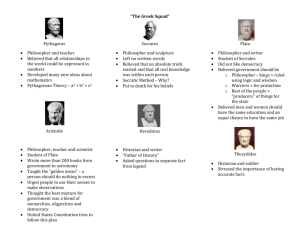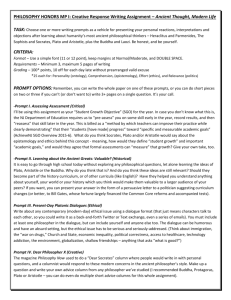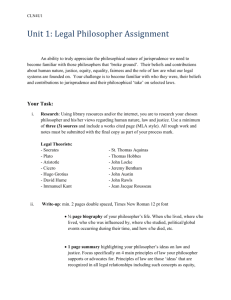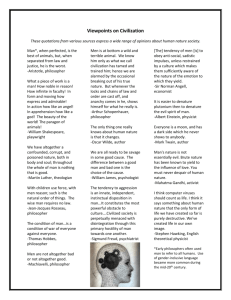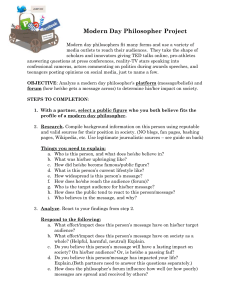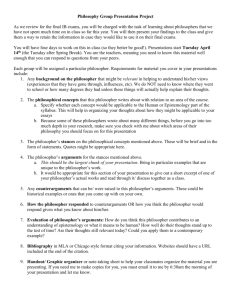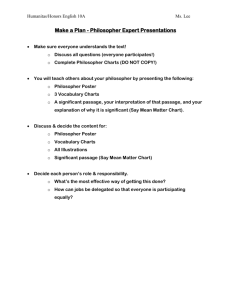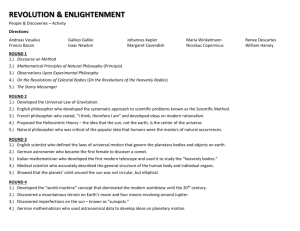Paper #2 - Due November 12
advertisement
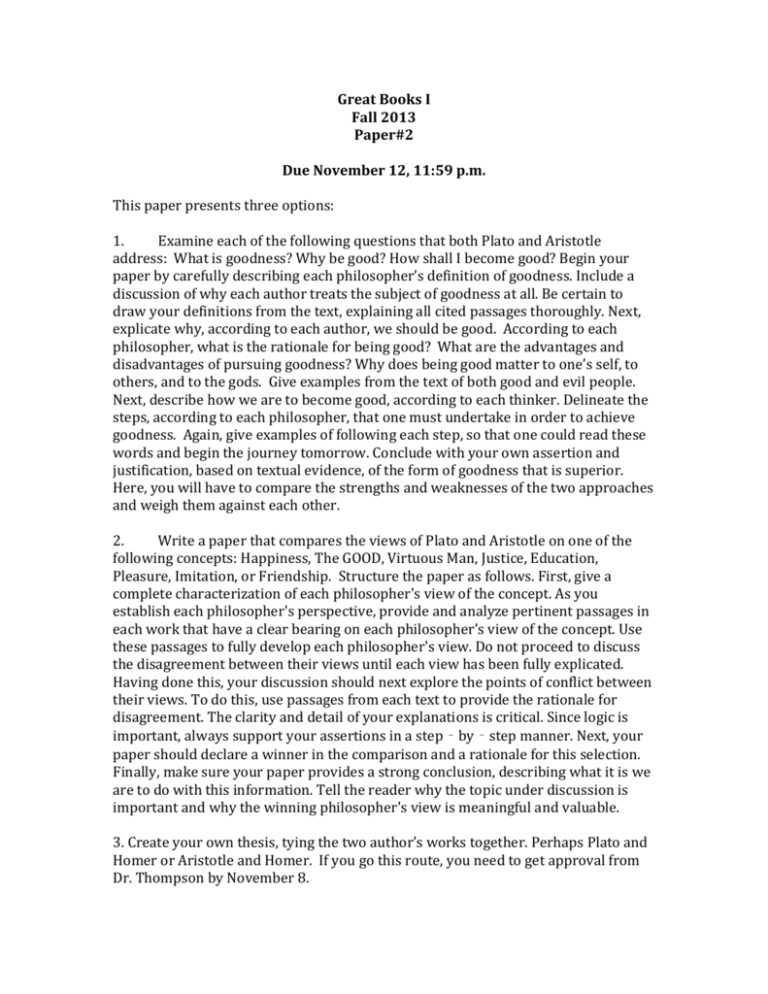
Great Books I Fall 2013 Paper#2 Due November 12, 11:59 p.m. This paper presents three options: 1. Examine each of the following questions that both Plato and Aristotle address: What is goodness? Why be good? How shall I become good? Begin your paper by carefully describing each philosopher’s definition of goodness. Include a discussion of why each author treats the subject of goodness at all. Be certain to draw your definitions from the text, explaining all cited passages thoroughly. Next, explicate why, according to each author, we should be good. According to each philosopher, what is the rationale for being good? What are the advantages and disadvantages of pursuing goodness? Why does being good matter to one’s self, to others, and to the gods. Give examples from the text of both good and evil people. Next, describe how we are to become good, according to each thinker. Delineate the steps, according to each philosopher, that one must undertake in order to achieve goodness. Again, give examples of following each step, so that one could read these words and begin the journey tomorrow. Conclude with your own assertion and justification, based on textual evidence, of the form of goodness that is superior. Here, you will have to compare the strengths and weaknesses of the two approaches and weigh them against each other. 2. Write a paper that compares the views of Plato and Aristotle on one of the following concepts: Happiness, The GOOD, Virtuous Man, Justice, Education, Pleasure, Imitation, or Friendship. Structure the paper as follows. First, give a complete characterization of each philosopher's view of the concept. As you establish each philosopher's perspective, provide and analyze pertinent passages in each work that have a clear bearing on each philosopher’s view of the concept. Use these passages to fully develop each philosopher's view. Do not proceed to discuss the disagreement between their views until each view has been fully explicated. Having done this, your discussion should next explore the points of conflict between their views. To do this, use passages from each text to provide the rationale for disagreement. The clarity and detail of your explanations is critical. Since logic is important, always support your assertions in a step‐by‐step manner. Next, your paper should declare a winner in the comparison and a rationale for this selection. Finally, make sure your paper provides a strong conclusion, describing what it is we are to do with this information. Tell the reader why the topic under discussion is important and why the winning philosopher's view is meaningful and valuable. 3. Create your own thesis, tying the two author’s works together. Perhaps Plato and Homer or Aristotle and Homer. If you go this route, you need to get approval from Dr. Thompson by November 8.
